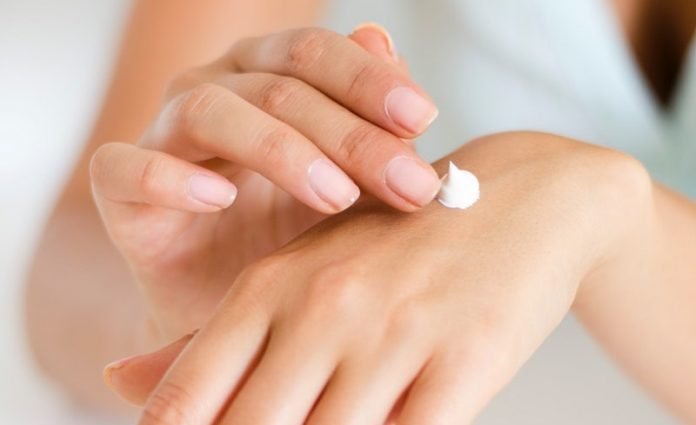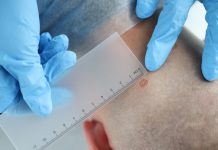
In the United States alone, about 3.3 million people are diagnosed with basal and squamous cell cancers (skin cancers) per year.
Skin cancer is still detected using visual examination, a method of limited reliability for early detection, subtype determination, or measuring the extent of skin invasion.
In a new study from the University of Utah, researchers have created a device, named URSKIN, that exploits changes in the electrical properties of skin that occur during cancer cell development.
It measures the opposition of electrical current related to skin cancer specifically.
The new device URSKIN applies a high-frequency, painless electrical current through the skin of interest.
“Physiological alterations in cancerous skin tissue then generate a unique voltage signature that is different from clinically normal skin.
In the study, the team tested the new device on 18 patients who already had biopsy-confirmed basal cell carcinoma, the most common form of skin cancer.
They say clinical presentation of basal cell carcinoma can be subtle.
It would be useful to have a non-invasive device to detect basal cell carcinoma at its earliest stage and also to be able to determine the depth of invasion to guide whether a biopsy should be performed and what type of biopsy is needed to fully assess the tumor.
Four different measurements were taken on each patient to assess the electrical properties of the basal cell carcinoma and the normal skin around it.
The team found URSKIN was able to detect significant differences between basal cell carcinoma and the healthy skin next to it.
The next steps for the device are to study more basal cell carcinoma patients to determine how well the device can distinguish between subtypes and to investigate its ability to identify other skin cancers, such as squamous cell carcinoma.
If you care about skin health, please read studies about common drug that may protect you from skin cancer, and findings of when should you see a dermatologist.
For more information about health, please see recent studies about vegetable oil linked to spread of cancer, and results showing that these people more likely to get severe COVID-19 after vaccination.
One researcher of the study is Benjamin Sanchez-Terrones, Ph.D.
Copyright © 2021 Knowridge Science Report. All rights reserved.



